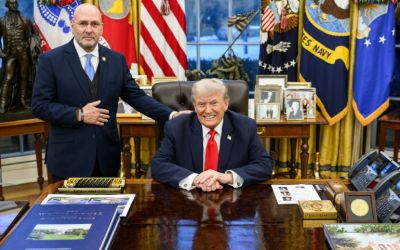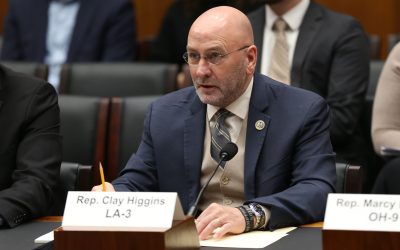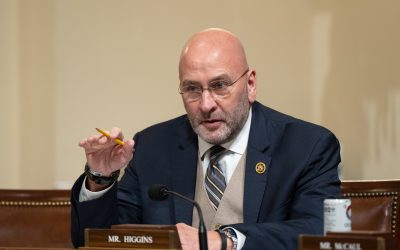WASHINGTON, D.C. – House Homeland Security Border Security, Facilitation, and Operations (BSFO) Subcommittee Ranking Member Clay Higgins (R-La.) today introduced H.R. 1639, the CBP Workload Staffing Model Act, to help Customs and Border Protection (CBP) determine its staffing needs. This bill follows multiplereportscalling on CBP to better plan for hiring agents. Homeland Security Committee Ranking Member Mike Rogers (R-Ala.), BSFO Subcommittee Chair Kathleen Rice (D-N.Y.), and committee member Michael McCaul (R-Texas) joined as original cosponsors.
“The current shortage of CBP agents has a direct impact on our national security and response capability. Our legislation requires CBP to develop a comprehensive staffing model that addresses hiring and retention challenges,” said Congressman Higgins. “This is part of a comprehensive effort to ensure that our border and ports of entry are fully staffed with qualified personnel.”
“Border Security, Facilitation, and Operations Ranking Member Higgins understands that our CBP law enforcement officers must be fully staffed to carry out our laws and keep our nation safe,” said Congressman Rogers. “I applaud Rep. Higgins for introducing this bill, which will help CBP adequately assess their staffing needs on the front lines.”
“Being a border patrol agent is a critical and challenging job, which has been made all that more difficult by high turnover and staffing shortages across the agency. We need to ensure that the men and women of CBP have the resources, training and support they need to do their job effectively and professionally,” said Representative Rice. “I’m proud to support a bipartisan bill that will help ensure that CBP can better plan for and determine its staffing needs.”
“I am proud to join my colleagues in introducing the CBP Workload Staffing Model Act to enable Congress to identify the gaps and needs in Customs and Border Protection (CBP) resources. Our border patrol agents work long hours in extreme conditions to secure our nation’s borders, but often have limited means to effectively do their jobs,” said Congressman McCaul. “This legislation will require the CBP commissioner to develop and implement a staffing model to better highlight and track the needs of CBP. This simple and critical change will ensure our CBP agents are equipped with the right resources to keep our communities safe as they fulfill their duty to oversee lawful trade and travel.”
The CBP Workload Staffing Model Act:
- Directs the CBP commissioner to develop a workload staffing model for Border Patrol and Air & Marine Operations;
- Adds implementation of workload staffing models for Border Patrol, Air & Marine Operations, and Office of Field Operations to the CBP commissioner’s duties to ensure they are prioritized; and
- Includes the development of standard operating procedures for a workforce tracking system for Border Patrol, Air & Marine Operations, and Office of Field Operations to the CBP commissioner’s duties to ensure they are prioritized.
Find the bill text here.



